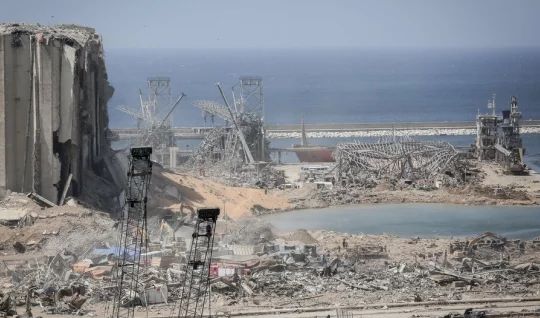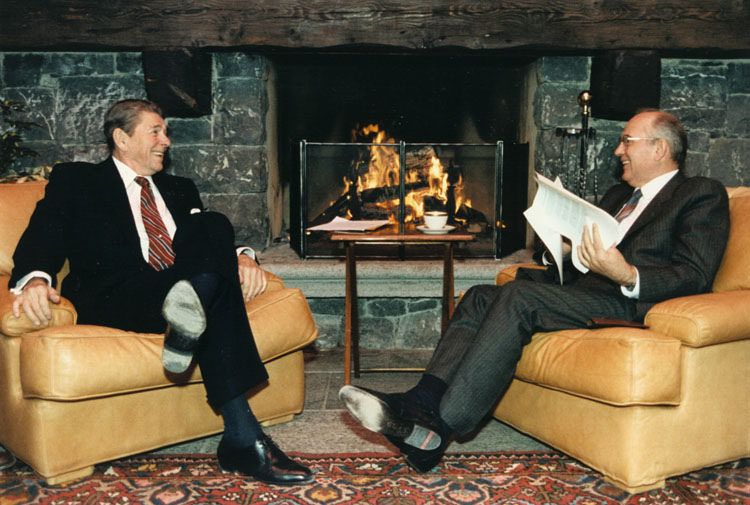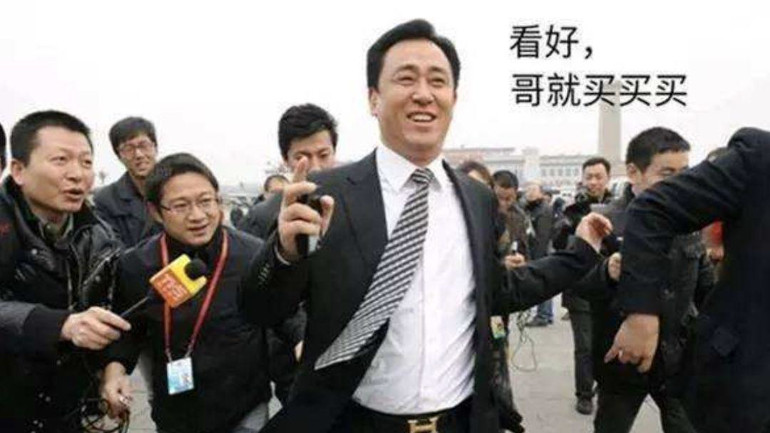Serge Jordan is a member of International Socialist Alternative.
“Before the Lebanese were angry because they had no money and no electricity. Now they have no windows and many do not have homes. If there is no bread, the people will be forced to violence. No electricity, no home, no bread? That’s a revolution” Abu Fadi, a former army officer, quoted in Business Insider
The gigantic explosion that rocked the heart of Beirut last week has not only laid waste to important parts of the city. It also ignited a furious response from the Lebanese people against their inept and corrupt ruling class, with tens of thousands flooding into the streets of the capital only days after the blast, even momentarily occupying ministerial buildings.
The apparition of the slogan “Resign or Hang” and of mock gallows says much about the mood on the ground. So deep has been the rage of ordinary Lebanese against “their” government that hardly any minister or high state official has dared to show their face in the streets after the explosion.
When the billionaire and ex-Prime Minister Saad Hariri did venture out at the scene of the blast, his convoy was pelted by angry protesters.
Prime Minister Hassan Diab quickly became the captain of a sinking ship, which the rats started to leave at an accelerated pace. Under irresistible pressure, he eventually offered the resignation of his government on August 10, one week after the explosion. He also offered the pathetic spectacle of denouncing the corruption and criminality of a political elite, whose bidding he has been doing for the last nine months. During that time, he has overseen Lebanon’s continued descent towards economic collapse. Last week’s devastating explosion both sealed this government’s fate and gave a new spur of life to the revolutionary movement that broke out last October.
Not a mere accident
No words can fully express the devastation visited upon the people of Beirut as a result of this explosion, one of the biggest non-nuclear blasts in history. Over 200 people have been killed, dozens are still missing, and hundreds of thousands of lives have been turned upside down. 12% of the city’s inhabitants, including up to 80,000 children, were made homeless in a matter of seconds. The port, a strategic entry point for imports to Lebanon but also to Syria and Jordan, has been reduced to rubble. COVID-19 infections and deaths are surging amid the fall-outs from the blast, including the partial destruction of an already overwhelmed hospital infrastructure and the heightened scarcity of medical supplies.
The main ingredient at the origin of this disaster is not in doubt: the unsafe and totally irresponsible storage of 2,750 tons of ammonium nitrate in a port warehouse for almost seven years. The country’s President Michel Aoun has suggested foreign interference through “a missile or bomb” could have been the detonator. Lebanon has a charged history of imperialist meddling and has experienced several rounds of destruction and bombings – most particularly from the Israeli regime, who has regularly threatened to send the country back to the stone age. But there is little evidence to support this explanation, it looks more like an attempt at deflecting blame away from the bare negligence of a helplessly corrupt ruling class. Diab’s office, it is now clear, was informed at least two weeks before the blast of the presence of this combustible material adjacent to residential areas of the capital and to the country’s main grain silos – but did nothing about it.
A government-led investigation is underway, supposedly to determine the exact circumstances of what happened. But no satisfying outcome can emerge from criminals investigating their own crimes! At best, this investigation will lead to the arrest of some “small shots” to try and diffuse popular anger; but it will inevitably stop before it reaches the doors of power. Only an investigation independent from a wholly untrustworthy political and judicial establishment, as well as from external powers who have backed up various factions of the said establishment over many years, can shed full light onto the highest levels of responsibility and deliver justice. Such an investigation would have to involve elected representatives from port and custom workers, as well as representatives of the victims’ families. But eventually, it would have to be assisted by the lever of mass struggle to be able to hold the real culprit to account: the capitalist system and its representatives.
A system rotten to the core
This totally avoidable explosion is the culmination point of a decades-long process of decay and increased mismanagement, which Lebanon has gone through as a result of the neo-liberal pillage undertaken by a corrupt coterie of politicians and ex-warlords, bankers and businessmen. As the journalist Karim Traboulsi wrote in The New Arab:
“Every other week, there is a similar scandal in Lebanon, involving government sponsored financial fraud, doctored fuel for power plants, spoiled meat allowed to be sold on the market, price gouging, waste mismanagement, toxic water pollution, road safety, and most recently, mishandling of the Covid-19 response. All these involve politically connected actors, known by name to all Lebanese. But this blast is the mother of all scandals”.
This catastrophe is covered by the fingerprints of capitalism. The story of how the dangerous chemical substance ended up in Beirut’s port is itself very telling. The merchandise was transported on a Russian-owned ship that sailed to Beirut under a Moldovan flag, using the “flag of convenience” practice that allows ship-owners to maximise profits by circumventing safety regulations and cutting on tax, insurances and wages. It is the same race for profits that is now driving up the price of glass in Lebanon, as a handful of capitalists are shamelessly making money off the widespread destruction of people’s properties.
The fall of Diab’s government is not enough
Hassan Diab’s cabinet is the second in less than a year that has been brought down by the wrath of the mass movement. It’s appalling record should shatter the illusion that a “technocratic government” – a demand that had some traction in the streets of Lebanon last year – can fix the country’s problems and respond to the Lebanese people’s aspirations for change. Behind the so-called independent experts were the props of established parties, most especially the Shia group Hezbollah and its allies, which have the largest bloc in Parliament. The economy minister happened to be the executive general manager of one of the biggest banks in the country! The feigned “independence” of these ministers was only aimed at diverting and taming the revolutionary movement.
Besides, Hassan Diab is now staying in a ‘caretaker’ capacity until a new cabinet can be formed. The negotiations that will underline this new process will see the very parties overthrown by last October’s revolutionary struggle, most notably the Sunni ‘Future Movement’ of Saad Hariri and his allies, jockeying behind-the-scene for renewed positions and influence. But as the popular slogan that has reverberated across Lebanon goes, “All of them means all of them:” the country’s workers and youth have risen up over the last year to uproot the whole rotten ruling class and its sectarian regime, and won’t settle easily for a mere recycling of old faces pursuing the same ruinous policies. The recent catastrophe will have undoubtedly deepened this sentiment.
French President Emmanuel Macron was quick to understand the political implications of this situation, and rushed to be the first international leader to visit shattered Beirut after the blast. Having probably drawn the lessons of ex-President Nicolas Sarkozy’s humiliating experience at the time of the ‘Arab Spring’ – when French imperialism’s close ties with Ben Ali and Gaddafi’s regimes were badly exposed – Macron did not want to miss a good opportunity for a publicity stunt, being caught on cameras on the side of the people and denouncing corruption. Behind this posture, Macron also wants to exploit the promised aid to Lebanon as an instrument of blackmail to force through wide-ranging “reforms” beneficial to French capital.
Yet France is not alone in these maneuvers. Lebanon has always been a crossroads of imperialist and regional powers’ interests. These outside forces have fuelled the inner power struggle between competing sectarian factions in order to further their own agenda, in Lebanon and the wider Middle East. As the Iranian regime is grappling with its own huge economic crisis, it is not in the position to funnel substantial financial assistance for the rebuilding of Lebanon to assert its influence, as it did for instance after the 2006 Israeli war against Hezbollah. The Western imperialist states and the Sunni Gulf Monarchies, while all having their own agenda, hope that this window of opportunity along with the simmering anger in the streets of Beirut can be used to their benefit in order to displace Hezbollah and Iran. “Some of us are hoping we can finally take advantage of the situation to shake things up among the political elites there,” a US official told the Wall Street Journal. In line with this strategy, the US government is preparing to impose a new round of sanctions against Lebanese politicians and business figures associated with Hezbollah.
While the protesting masses in Lebanon have rightfully stripped the mask from Hezbollah and exposed it as firmly on the side of the corrupt and the powerful, they have nothing to gain from these sinister imperialist calculations either. Unless the revolutionary movement builds its own independent political expression, rejecting in equal manner the triple scourge of capitalist exploitation, imperialist interference and religious sectarianism, the danger is real that the legitimate struggle of the workers, unemployed youth and middle classes of Lebanon could be misused for the power games of those at the top. To avoid the current political vacuum being filled by the outcome of a renewed factional battle between corrupt sectarian cliques and their foreign backers, or by a new cabinet of “experts” selected for their subservience to the status quo, will require that the mass movement organises around its own political alternative and forges the means to impose it.
Building a united struggle for a socialist and democratic Lebanon
One of the defining features of the “October revolution” has been its capacity to cut through the fog of sectarian divisions, uniting in action people of all backgrounds against all sectarian wings of the ruling class – and against sectarianism itself. However, the latter is an integral part of the DNA of every major established political party in Lebanon, as well as of imperialism’s old toolbox to get its way in the region. Both to break class resistance and as the basis for an extended system of patronage, the confessional power-sharing system has been instrumental in the capitalist elite’s plundering of the country’s wealth for decades. This means the struggles against sectarianism and against capitalism are organically bound to each other, or will be bound to fail.
High on the list of priorities of this struggle should be the forging of a non-sectarian working class party, and the rebuilding of a genuinely militant trade union movement, independent from all sectarian pro-capitalist parties. The official General Confederation of Lebanese Workers (the main trade union confederation) has seen a process of hollowing out and degeneration through years of corruption and infiltration by sectarian stooges, which explains its conspicuous absence since the beginning of the revolutionary movement last year.
The Lebanese working people and poor have learnt the hard way that they can only rely on their own initiatives and strength if they want to get things done. Last week’s blast in Beirut has underscored this bitter truth once more. In contrast to the greed and callous incompetence of the capitalist elite, the streets of the capital witnessed countless scenes of spontaneous working class solidarity and selfless sacrifice from local residents and volunteers taking things into their hands to clear the rubble, organising aid to those in need, etc. In the meantime, the state has been noticeable by its absence, its functions being reduced to their simplest expression, i.e. exercising crude violence against the oppressed to protect the interests of the ruling class. Hence the shootings of tear gas and rubber bullets at protesters, hence the near-unanimous vote in the Parliament, with just one MP against, on August 13, for a sweeping state of emergency that gives extended repressive powers to the army. This anti-democratic move marks the Lebanese ruling class’ preparation for the possibility of more serious revolutionary outbreaks, and underlines why giving a more organised expression to the widespread anger that exists in society is vital and urgent if real change is to be achieved.
In the immediate term, democratically organised relief committees could oversee the distribution of aid in the neighbourhoods and make sure that the desperately needed material assistance is not embezzled by corrupt officials. Yet charity and solidarity among ordinary Lebanese can only go so far if the country’s economic resources and levers of state power continue to be controlled by a handful of parasites holding the whole country to ransom. This is why it is equally important to build across all sectors, workplaces and local communities action committees to structure and prepare for a mass political struggle aimed at wresting power from capitalism, the system that has allowed this tiny minority to accumulate colossal fortunes while sowing hunger, poverty, disease, destruction and repression to the rest of the population.
The huge state debt, from which the banking sector has made massive profits over years, should be fully repudiated, along with all the austerity and anti-poor policies justified by the need to repay it. Price controls should be imposed on food, medical supplies, construction material and other products of basic necessity. All banks and financial institutions should be brought into public hands — and their books made open to public scrutiny. The wealth of Lebanon’s millionaires and billionaires, built through corruption, speculation and financial racket, should be seized, and the economy democratically planned to respond to the needs of the majority: feed and house the poor and the homeless, invest in healthcare and public services, rebuild the country’s collapsing infrastructure from top to bottom. If the revolutionary workers and youth of Lebanon arm themselves with a program of socialist demands of that sort, their struggle would have the potential to rapidly garner larger support, and to inspire millions across the entire region to follow suit.




